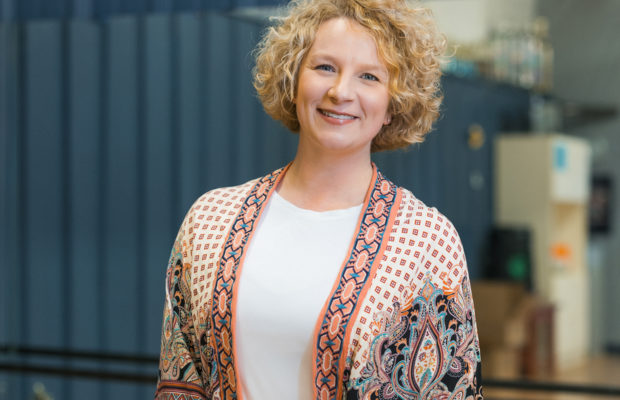Dance Infinity

Gaining confidence and learning to believe in yourself are just a couple of benefits Dance Infinity hopes to instill in its students. While dance competition is an option, it is not the studio’s main focus. The focus is more on helping children grow into the adults they are meant to be.
“We build confidence while teaching proper technique and encourage each student to pursue his or her artistic passion,” says owner Jenny Johnston. “Dance Infinity goes by the motto, ‘No Drama, Just Dance!’ Our faculty strive to pass on their knowledge and love of dance while nurturing each student’s individual development.”
Dance Infinity offers Creative Movement classes and Tap/Jazz/Ballet combination classes for younger kids. Hip Hop, Jazz, Musical Theater, Ballet, Pointe, Tap, and Modern are available for older students. Children as young as two-and-a-half start their dance journey at the studio, and they also have occasional adult classes.
Jenny started taking dance lessons when she was 3 years old and hasn’t stopped since. According to her mother, she was dancing long before she could walk. A graduate of Bryant High School, Jenny attended the prestigious Oklahoma City University, graduating in 1996 Cum Laude with a Bachelor of Performing Arts degree.
Jenny’s first professional gig was for a magician in Branson, starting as a dancer and within a year being promoted to lead magician’s assistant. Her performance partners included a white tiger, leopards, and a boa constrictor. She would later go on to perform with the legendary Andy Williams as a dancer for two holiday seasons.
After 9/11, Jenny and her husband decided to move back to Benton to be closer to family as they started their own family. She taught dance at a few studios across Central Arkansas before taking a job in Benton teaching tap at Laura Stillwell and Company in 2008. In 2016, Jenny started Dance Infinity, Inc. and purchased the Stillwell studio.
Like many similar businesses, Dance Infinity is “slowly climbing out of a post-pandemic financial crisis,” Jenny says. “We are not an essential business. We are a luxury that not everyone can afford. We are trying to survive and build our studio back up to the capacity it was prior to March of 2020.”
To help her do that is Jenny’s love of dance and love of working with children. “I don’t know that I have a secret to success,” she says.
“I try to get to know each dancer throughout the year. Each week of class, each student shows up with events that have happened in their life that week. They need someone to talk to, an adult to listen. Gaining their trust is a priority. How can you ask them to try something new if they don’t trust you? We at Dance Infinity want to focus and highlight each dancer’s strengths. We do not compare others’ triumphs with someone else’s shortcomings. Kids, both young ones and teenagers, have a hard enough time navigating through this crazy world. Why add to their stress?”
Performing has always been a part of Jenny, and now that she’s older, she says she loves watching the learning process a student goes through. For her, dancing has been a stress reliever and a place where she can become whoever and be wherever the music takes her.
“The look of joy and excitement as students accomplish a step or a combination is fulfilling,” she says. “To see them fill up with pride makes my heart smile.”
Twice a year, Dance Infinity partners with I Can! of Arkansas to provide free dance classes to students with disabilities. Ten-week sessions are held in the fall and another in the spring, with a performance or recital at the end of each 10 weeks. The partnership provides a rewarding volunteer opportunity for dancers in the area to be a “Buddy” to I Can! dancers to help guide them through class and choreography.
Not only is dance a great form of exercise that can be done year-round, but it’s also a great way to exercise a person’s mind, Jenny says. “Many times, a combination of steps has a pattern—this can help a child with cognitive skills needed in math and science.”
Participating in a dance class also promotes social development and problem-solving skills, Jenny notes. Students learn to take turns, to cheer on a classmate, and that everyone has something to be proud of each day.
“The reality is that most children and teens who take dance classes will not become professional dancers, but the long-term benefits and friendships that one can gain from dance class are worth it. The confidence to stand in front of a crowd and hold your head high, or the ability to pursue your goals and dreams that may at first terrify you—it’s because of some of the valuable lessons taught in dance class. It’s because some dance teacher believed in you before you believed in yourself. And bottom line, dance is fun!”







0 comments